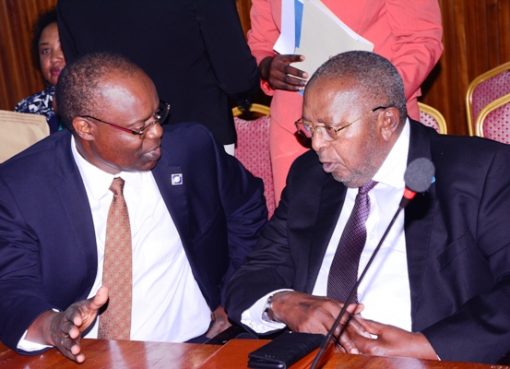The former chairman of one of China’s bad banks has confessed to taking millions of yuan in bribes which he kept in metal cabinets in a Beijing apartment he nicknamed “the supermarket.”
Lai Xiaomin (pictured), former head of China Huarong Asset Management Co., has been charged with taking bribes, corruption and bigamy in one of China’s biggest financial corruption cases.
On Monday, he confessed in a state TV documentary that he preferred cash payments and said he would drive trunk loads of bills to the apartment, where more than 200 million yuan ($29 million or UShs106.4bn) was uncovered.
“I got the money and just left it there, just like making regular trips to the supermarket,” the 57-year-old Lai, wearing a gray-blue polo shirt, said on the program. “I didn’t spend a cent. It’s all confiscated in the end.”
Confessions such as Lai’s are becoming a more common ritual in China as President Xi Jinping tightens his grip on the Communist Party-ruled nation. Xi is also contending with the slowest economic growth in three decades, rising financial risks, a trade dispute with the U.S. and growing opposition to the Communist Party in Taiwan and Hong Kong.
Authorities are taking an increasingly tough stance on corporate malfeasance, broadening Xi’s seven-year corruption crackdown into the nation’s boardrooms. In a speech Monday, Xi said the state will also punish people responsible for corruption linked to local government debt risk. China is in the midst of a record wave of bond defaults as growth slows, with even state-backed firms now missing bond payments.
Detained in 2018, Lai is accused of taking 1.65 billion yuan in bribes, people familiar with the matter have said. He was found to own a large number of properties, luxury watches, cars, gold and art collections.
‘Shocking’
The revelations about Lai have been a hot topic among top policy makers, regulators and state-owned entities. The central bank has said that Lai’s “shocking” activities caused severe losses for the state, undermining both financial security and stability. State media calls him the nation’s most corrupt financial official.
A slew of officials have been caught up in Xi’s dragnet, including Yang Jiacai, a former assistant vice chairman at China Banking Regulatory Commission, Yao Gang, who was vice chairman of China Securities Regulatory Commission and Wu Xiaohui, who oversaw Anbang Insurance Group Co. They were all sentenced to at least 16 years in prison. More than 1 million government officials have been punished in Xi’s anti-corruption campaign, according to the official People’s Daily.
In another high-profile case, China’s Communist Party last week expelled former China Development Bank Chairman Hu Huaibang after finding “serious” disciplinary and legal violations.
Lai oversaw Huarong from 2012 until he ran into trouble in 2018. It’s one of four companies set up in 1999 to help clean up a banking system riddled with bad debt. The state-owned enterprise held a $2.5 billion initial share sale in 2015, giving it a market value of more than $15 billion. Its Hong Kong shares are now worth less than half of that.
Under Lai, Huarong’s business was expanded into securities, trusts, investments and futures, deviating from the mandate of disposing of bad loans. The former head of its international operation said Lai only cared about short-term profit and invested heavily in high-risk assets such as properties and stocks. Lai also created a culture of nepotism by hiring people from his province in Jiangxi, even snatching the chef at Huarong from his home region, according to the documentary.
Lai had previously worked at the central bank and China’s banking regulator.





